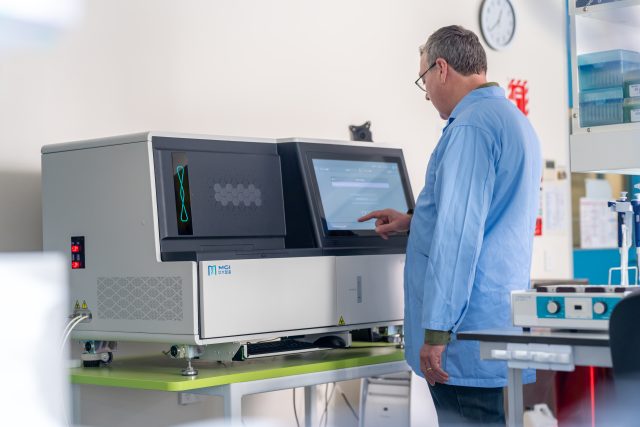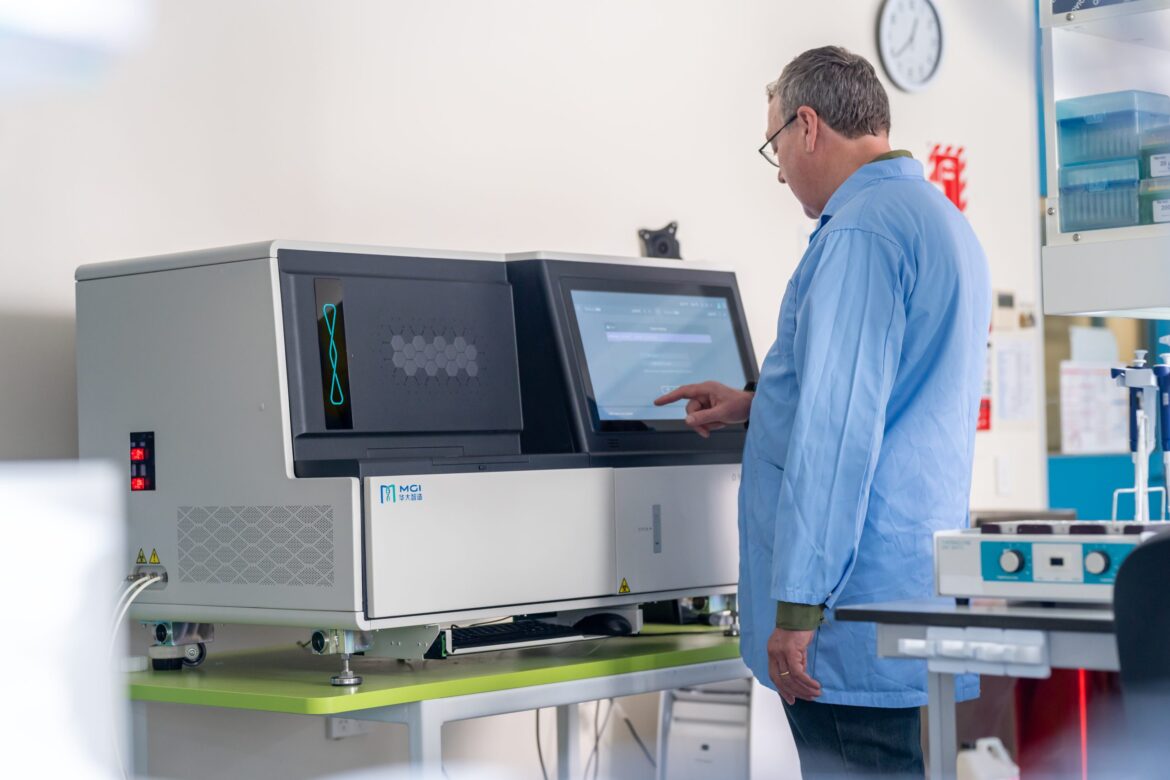Lincoln University and MGI Tech are using new DNA sequencing to help New Zealand grape growers breed disease-resistant vines and reduce reliance on fungicides.

MGI Tech has partnered with Lincoln University in Canterbury to apply genomic sequencing to New Zealand viticulture, with the aim of reducing the industry’s dependence on fungicides and promoting more sustainable growing practices.
This development follows previous sustainability efforts in New Zealand’s wine sector, including the regulatory approval of a pioneering biofungicide in May 2023. That step aimed to reduce chemical use; today’s genomics project now goes deeper, targeting resistance at the vine’s genetic level.
Genomic sequencing involves reading and analysing the DNA of organisms to identify specific traits – in this case, grapevines with natural resistance to disease and environmental stress.
Using MGI’s high-throughput genome sequencing platform, researchers can now scan tens of thousands of grapevine samples to pinpoint those with beneficial traits. The goal is to breed more resilient vines and reduce the need for chemical spraying – a concern for New Zealand’s NZ$2.1 billion wine export industry.
New Zealand vineyards are highly susceptible to fungal disease, often requiring frequent applications of fungicides. The country’s farmers apply around 3,400 tonnes of pesticides annually, with 60% of fungicides and 72% of plant growth regulators used falling under the US EPA’s classification as potential carcinogens.
“These pressures are only intensifying,” said Associate Professor Christopher Winefield, from Lincoln’s Department of Wine, Food & Molecular Biosciences. “Climate change is bringing more volatile weather conditions, which increases disease risks. Our aim is to give the sector tools to respond in a smarter, more targeted way.”
Sequencing at scale: from hundreds to tens of thousands
Previously, researchers could only analyse a few hundred grapevine samples per year. With the installation of MGI’s DNBSEQ-G400 sequencer, the team can now process more than 50,000 samples annually – a hundredfold increase.
“The introduction of MGI sequencing tools has really helped democratise sequencing for small teams like myself,” said Winefield. “The cost of that sequencing is highly competitive. We’re now looking to process up to 50,000 samples a year – we simply couldn’t do that without MGI’s support.”
The real-time capabilities of the platform also allow detection of vineyard threats such as powdery mildew or mealybug, enabling growers to shift from blanket spraying to targeted treatments.
“Instead of scheduled spraying, farmers can move to evidence-based treatment,” Winefield said. “That means fewer chemicals in the environment and better resistance management.”
Reducing sprays, increasing resilience
Early findings suggest that genomics-informed interventions could cut chemical spraying by up to 80% in some vineyards. While Winefield acknowledges zero sprays is unlikely, he noted that “even removing a single late-season spray has multiple benefits – lower costs, less residue in the wine and reduced pressure on soil health and the environment.”
The data also helps identify vines more resilient to water stress and poor nutrient conditions – increasingly important factors as climate change intensifies.
Dr Bicheng Yang, Director of MGI Australia, said the project highlights the role genomics can play in sustainable agriculture. “By helping researchers uncover the genetic drivers of disease resistance, we’re enabling the industry to move away from chemical dependency and toward natural plant resilience.”
Commercial applications and global potential
Winefield and his team are now developing a commercial venture to bring genomic testing to other parts of New Zealand agriculture, including horticulture and dairy. The startup aims to process one million samples annually at launch, scaling to 10 million within five years.
“This is about getting world-class science into farmers’ hands,” Winefield said. “Even small producers will be able to make proactive decisions based on early detection and reduce unnecessary chemical use.”
Winefield sees the potential for the research to extend far beyond New Zealand. “We may never feed the world by volume, but we can lead through better science,” he said. “Exporting our genomic insights, tools and resilient plant stock could transform productivity and environmental outcomes for global agriculture.”
Looking ahead, he envisions genomic diagnostics becoming as routine as soil testing or weather forecasting. “This isn’t just about grapevines,” he said. “Whether it’s hops, kiwifruit, apples or livestock, we can use this data to reduce disease pressure, improve yields and make smarter input decisions.”
With more aggressive disease outbreaks linked to climate change, the researchers believe genomic-based decision making could help future-proof farming practices in New Zealand and abroad.
Related news
Texas couple die in wine cellar dry ice accident
Wine producers in the Douro take to the streets
Did you know California has volcanoes?

